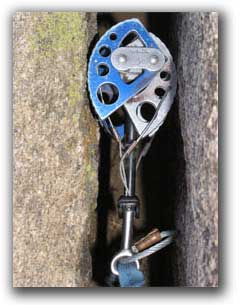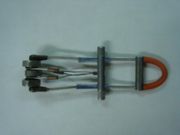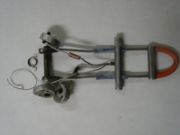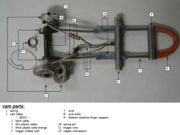Active climbing cam
From DDL Wiki
Contents |
Pre-Dissasembly Phase
User interaction
Inputs:
- retraction force from hand
- friction force from rock
- reaction force from rock
Outputs
- force on climbing rope
- force on rock
Function: Spring Loaded Camming Devices
- protect against falls in free or aid climbing
- build removable anchors in rock
- secure a belayer
- mountaineering uses
- mountain rescue
- passive climbing protection
Method of Use
- locate crack
- Identify appropriate size cam unit
- remove cam from harness/chest sling
- grip cam securely
- retract the trigger
- insert in crack, pocket or flake
- find secure placement
- orient the cam with expected direction of force
- retract trigger and remove
- removed either on rappel or by 2nd climber
- replace back on harness or chest sling
Stakeholders
- climber
- rescue workers (mountain rescue)
- insurance companies (health, life & company insurance)
- tourism
- manufacturers
- hospitals
- environment
- retail services
- distributors
Issues associated with use
- having proper size for each type of placement
- dropping the device while climbing
- "walking" in cracks (when device gets stuck in a rock and you cannot remove it)
- with many devices the extra weight is evident
Watch a demonstration video on using a climbing cam that we did in the lab
Part analysis
Roberto Cabrera..




